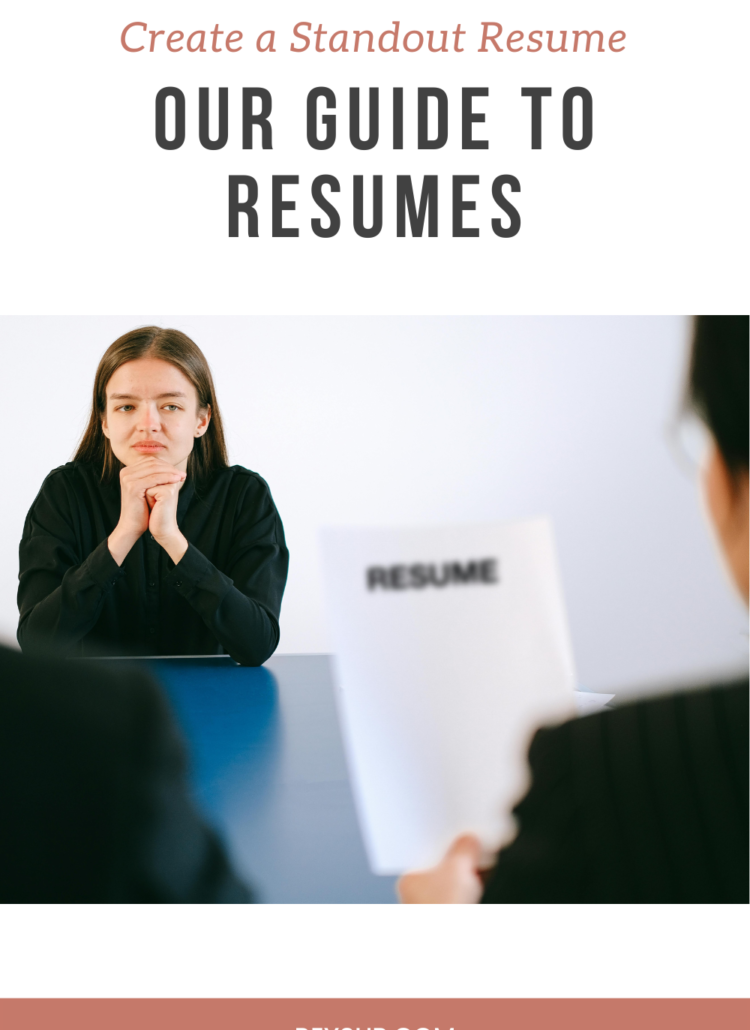This article is all about steps you can take instead of writing a cover letter to improve your chances of landing your dream job.

Here’s a hot take: We think cover letters are stupid.
Surprised? You probably are because it’s likely every book you’ve read on ‘mastering job applications’ has told you how important the cover letter is. These books often say how ‘it’s your time to really show just how interested you are in a position’ and ‘how it’s a terrible look if you don’t put in the effort to write one’. Blah blah blah. I’m not buying it. In fact, there a a lot of better actions instead of writing a cover letter.
I’ve been a hiring manager at some of the largest tech companies in the nation for almost a decade. I’ve sourced, screened, and hired many candidates and have sat on countless interview panels. It’s probably safe to say that I’ve been a part of over 500 interviews. Want to know how many cover letters I’ve read? Zero.
Everyone hates cover letters, even recruiters!
As much as candidates dread writing cover letters, recruiters and hiring managers equally dread reading them – which is why many of them don’t. In fact, many of the most sought-after tech companies of our time such as Google and Apple – notorious for attracting the most intelligent and high achieving candidates – don’t require cover letters as part of their application process. They instead rely on the time-tested methods of strong screening practices and deliberate interviewing to determine if a candidate is a fit. What a novel idea!
My main goal as a hiring manager is to understand if a potential candidate is equipped to do that job at hand. I never understood how providing a long-form sample of writing told me any more than what a resume told me. After all, the resume provides all the details I need to know about a candidate’s previous experiences, skill sets, and achievements, but in a much more digestible way.
And remember, I only have about ~30 seconds to review an applicant before I’m onto the next. Unless the job requires hard core writing – which rules out 95% of jobs in tech – there is simply no point. And even if writing was important to the role, I’d much rather view a portfolio of past writing samples versus a fake, over-engineered writing snippet about why a candidate thinks my company is the best thing ever. No thanks.
Instead, focus on smarter ways to stand out
When I share my opinion on this topic, I usually get mixed reactions. When I speak with managers and recruiters in the industry, I usually get the ‘I totally agree, they are pointless’ response. On the flip side, when I tell candidates in the process of applying to jobs, I am usually met with surprise and questioning looks. It’s probably because school tells us it’s the right thing to do. I also think it’s because there is this sentiment that if you don’t complete a cover letter, it somehow reflects poorly on your work ethic – as if you were too lazy to muster up the 30 mins and write the damn thing.
Here’s my response to that. Instead of wowing me in a document that we both can agree – much like the smile of the woman at the TSA counter checking my passport – is pretty fake and forced, wow me in a more powerful way. That way, you not only come off as more genuine, but you actually impress with solid skills that are relevant to the job at hand.
So with that, here are 4 better actions instead of writing a cover letter.
4 Better Actions to Take Instead of Writing a Cover Letter
Pre-maturely submit professional references that speak to your ability in the field.
Submitting references prematurely when interviewing for a job can be a really smart play. It demonstrates confidence in your qualifications and readiness to proceed with the hiring process, which can work to impress the potential employer. Also, by providing references early, you streamline the employer’s task of verifying your credentials and professional background which could in turn speed up the hiring decision.
By taking this proactive approach, you show that you have strong, reliable endorsements from previous employers or colleagues and reinforce your credibility for the role. However, it’s important to ensure that your references are prepared and willing to speak on your behalf. To do that, check out our article here on how to prepare for and master a reference interview.
Also Read 7 Simple Steps to Prep for Your Behavioral Interview
Host an informational interview with a current employee
Hosting an informational interview with someone who works at a company you want to apply to is a really smart strategy. By taking the time to do this, you gain first-hand insights about the company and can in turn better prepare your application and for the interview.
In this informal meeting, you can uncover more detail around what the company values in its employees, the skills and experiences they prioritize, and the nuances of their work culture. With this insider knowledge, you can then tailor your resume to highlight the most relevant qualifications, and you’ll be better equipped to perform well in the actual interview. Additionally, the insights you gain from this conversation can help you to ask more thoughtful, informed questions to the hiring manager or recruiter. This will in turn set you apart from other candidates and show that you are well-prepared and serious about the opportunity.
If you are interested in hosting a conversation like this, be sure to read our how to host an informational interview article first.
Write a really strong resume
This is pretty obvious, but writing a strong resume that highlights the specific skillsets the company is looking for is crucial for standing out in a competitive job market. Tailoring your resume to emphasize the skills and qualifications mentioned in the job description shows that you have the exact competencies the employer is looking for. Additionally, highlighting relevant work experience demonstrates that you have practical, hands-on expertise and a proven track record of success in similar roles. If you are interested in beefing up your resume, but don’t know where to start, check out our article on the do’s and don’ts of resume writing.
Outshine the competition in the interview.
This is also a pretty obvious statement, but the point is that how you preform in the interview holds so much more weight than what you write in your cover letter, so you should spend the majority of your time focusing and preparing here. It will be importance that you ace the behavioral interview with well-planned responses that highlight the exact skills the hiring manager is looking for and ask extremely thoughtful questions to show you have the growth mindset required to excel within the team. Head over here to check out our article on behavioral interviews if you need prep help.
Conclusion
At the end of the day, it would seem that the cover letter is more of a performative measure rather than an indication of ability. The next time you are applying to a job that asks for a cover letter, think to yourself if it’s truly necessary and if you could be spending your time in more meaningful ways. Personally, if a company is mandating it, it would give me reason to pause because it could indicate that the team hasn’t caught up with the times, which could lead to other issues down the road.





